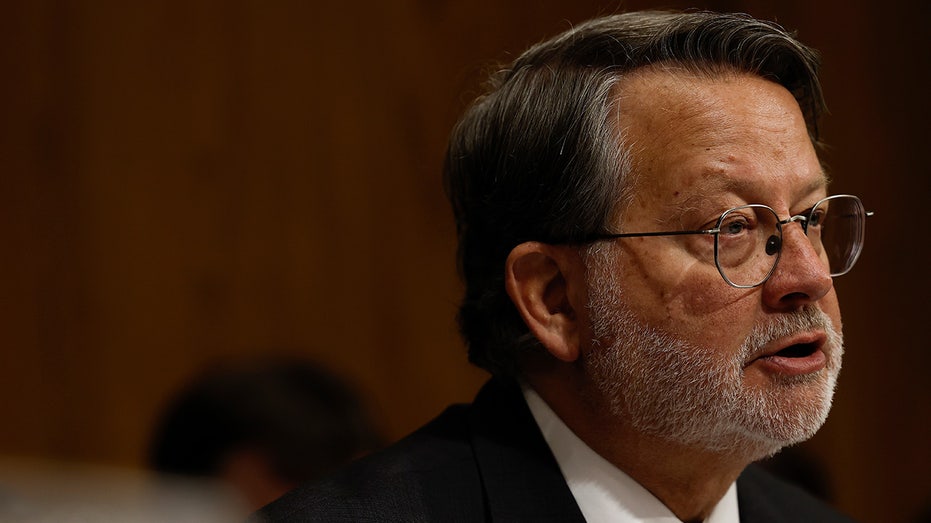Republicans and Democrats team up to take on AI with new bills
The latest AI bills show there's bipartisan agreement for the government to be involved
We are seeing an artificial intelligence battle between Microsoft and Google: Beth Kindig
I/O Fund CEO and lead tech analyst Beth Kindig provides insight on stock performance and the development of AI on 'Making Money.'
U.S. senators on Thursday introduced two bipartisan artificial intelligence bills as lawmakers in both parties agree the government must get involved with the emerging technology.
The first bill would set up transparency requirements when the government uses AI to interact with people and a second would create a new government office to assess whether the U.S. is keeping pace with other countries as AI technology develops.
Lawmakers are beginning to consider what new rules might be needed because of the rise of AI. The technology made headlines earlier this year when ChatGPT, an AI program that can answer questions in written form, became generally available.
Homeland Security Chairman Sen. Gary Peters, D-Mich., introduced a bill along with Sens. Mike Braun, R-Ind., and James Lankford, R-Okla., which would require federal agencies to notify individuals when they are interacting with, or subject to critical decisions made using, certain AI or other automated systems.
WATCH OUT, SILICON VALLEY: MIAMI IS VYING TO BECOME AMERICA'S AI HUB

Homeland Security Chairman Sen. Gary Peters, D-Mich., introduced legislation to set transparency requirements on the government's use of AI. (Anna Moneymaker/Getty Images)
The bill also directs federal agencies establish an appeal process involving real human-beings who will review decisions made by AI.
"Artificial intelligence is already transforming how federal agencies are serving the public, but government must be more transparent with the public about when and how they are using these emerging technologies," Peters said in a statement.

The OpenAI logo is seen on a mobile phone in front of a computer screen which displays the ChatGPT home Screen, on March 17, 2023, in Boston. U.S. lawmakers are showing increasing interest in regulating the development of AI. (AP Photo/Michael Dwyer, File / AP Newsroom)
"No American should have to wonder if they are talking to an actual person or artificial intelligence when interacting with the government," said Braun. "The federal government needs to be proactive and transparent with AI utilization and ensure that decisions aren’t being made without humans in the driver’s seat."
A separate bill introduced by Sens. Michael Bennet, D-Colo., Todd Young, R-Ind., and Mark Warner, D-Va., would create an Office of Global Competition Analysis to analyze U.S. competitiveness in AI fields compared to other countries, like China.
OPENAI CEO SAYS ELON MUSK IS ‘TOTALLY WRONG’ ABOUT CRITICISM OF COMPANY

Sen. Todd Young, R-Ind., introduced a bill with Sens. Michael Bennet, D-Colo., and Mark Warner, D-Va., that would create a new government office to assess U.S. competitiveness in AI compared to other countries. (Kevin Dietsch/Getty Images / Getty Images)
"We cannot afford to lose our competitive edge in strategic technologies like semiconductors, quantum computing, and artificial intelligence to competitors like China," said Bennet.
"This legislation will better synchronize our national security community to ensure America wins the technological race against the Chinese Communist Party. There is no single federal agency evaluating American leadership in critical technologies like artificial intelligence and quantum computing, despite their significance to our national security and economic prosperity. Our bill will help fill this gap," said Young.
CLICK HERE TO GET THE FOX NEWS APP
These bills come after Senate Majority Leader Chuck Schumer, D-N.Y., said he had scheduled three briefings on AI for senators, including a classified briefing to educate lawmakers on the topic.
The briefings include a general overview on AI, examining how to achieve American leadership on AI and a classified session on defense and intelligence issues and implications.
Reuters contributed to this report.





















